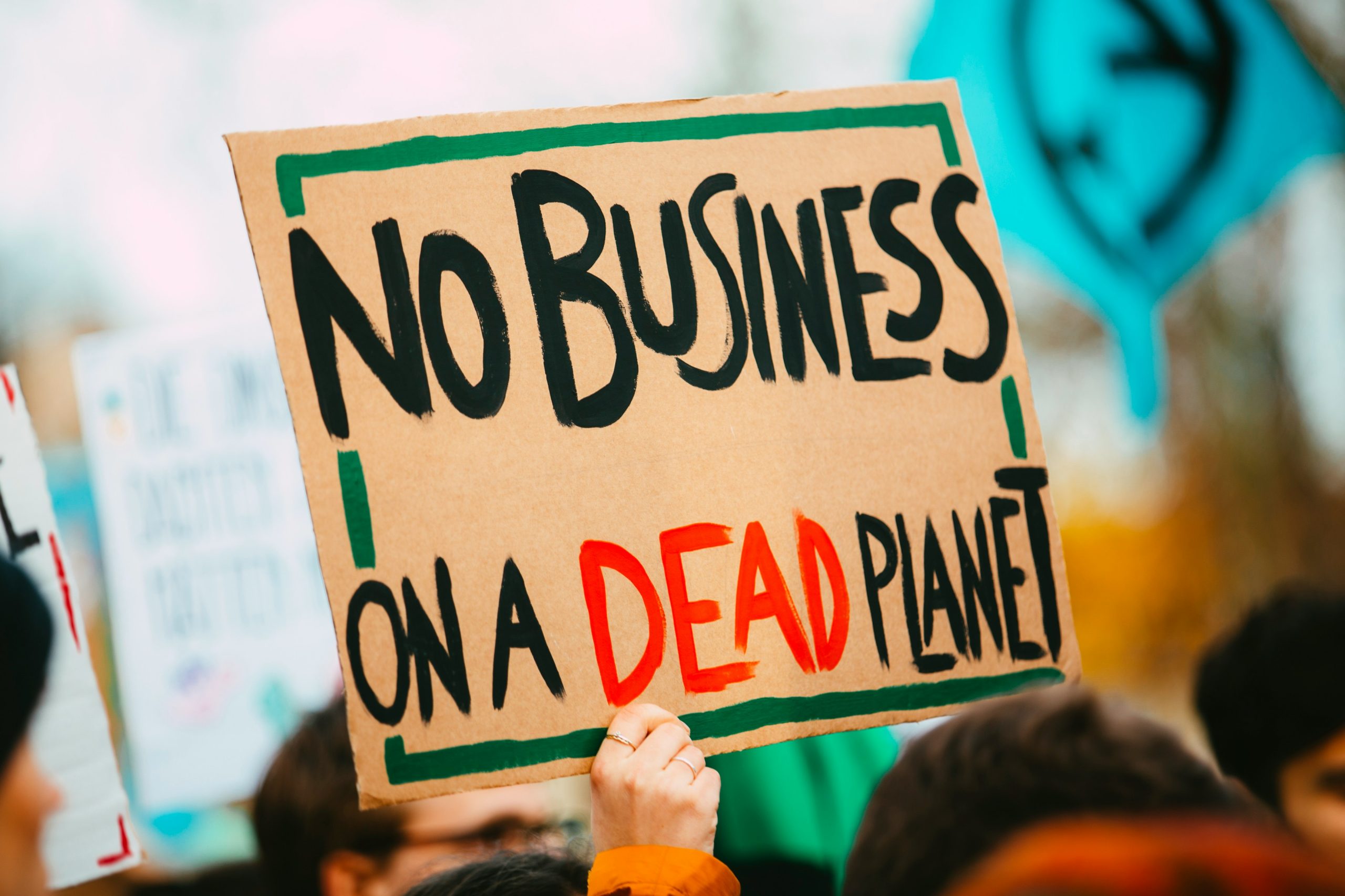Closing the Accountability Gap: The Urgency of Mandatory Corporate Climate Commitments – Powerless law or law for the powerless? An Environmental and Energy Perspective

This piece is part of the American Branch’s first blogging symposium, examining the ILW 2024 theme of ‘Powerless law or law for the powerless?’ from an International Environmental and Energy Law perspective.
Closing the Accountability Gap: The Urgency of Mandatory Corporate Climate Commitments
by Eoin Jackson*
There has been increasing recognition of the link between climate change and corporations’ contribution to the rise in greenhouse gas emissions. According to the Carbon Majors Database, just 57 companies have been linked to 80% of emissions since 2016. Yet, even as this link between corporations and climate change becomes clearer, corporate climate commitments have consisted mainly of voluntary standards. For example, there are individual climate commitments from various corporations, including from key oil majors group climate commitments present in organizations like Net-Zero Asset Owner Alliance (since withdrawn from by major companies like Vanguard), and commitments pursued at climate Council of the Parties meetings (‘COPs’) like the Oil and Gas Decarbonization Charter, which lack enforcement mechanisms but seek to use COP to provide a veneer of authority to its commitments. None of these standards, however, have been effective in reducing corporate emissions, and many of the leading signatories of these commitments continue to pursue anti-scientific expansion of fossil fuels. There is, therefore, an urgent need, both from a scientific and policy perspective, for mandatory corporate climate commitments at the multilateral level.
The Scientific Need for Mandatory Corporate Climate Commitments
We have direct peer-reviewed evidence that voluntary commitments have been insufficient in encouraging corporations to follow science-led policies to reduce their emissions. A recent report from researchers at Imperial College London and Utrecht University has shown that companies setting individual climate commitments do not necessarily cause a drop in actual emissions and can, in fact, be used to water down or delay regulation. The paper advocates for governments and intergovernmental organizations to introduce legal frameworks for corporations based on a range of indicators that encourage best practices, innovation, and stringent requirements on transparency for any assessments. Additionally, a 2024 report from the New Climate Institute shows that “51 of the world’s largest companies commit to reducing their emissions by only 30% on average by 2030, falling short of the 43% reduction required to limit global warming to 1.5°C.” This is even more apparent in the context of fossil fuel majors, with Oil Change International identifying that the eight largest U.S. and European-based international oil and gas producers’ climate plans “fail to align with international agreements to phase out fossil fuels and to limit global temperature rise.” It is clear that the best available evidence we have shows that voluntary commitments are not working and may, in fact, be delaying progress toward necessary regulation.
However, the challenge of utilizing this data to prove the legal and policy impetus for mandatory corporate climate commitments is that the IPCC has yet to formally consider the role of corporations in the rise of emissions within its assessment reports. While the Sixth Assessment Report (the most recent report) notes, for example, “the extent to which civil society actors, political actors, businesses, youth, labour, media, Indigenous Peoples, and local communities are engaged influences political support for climate change mitigation and eventual policy outcomes,” it does not contain specific analysis of the impact of corporations on greenhouse gas emissions, nor has there been a Special Report by the IPCC on this issue. Given the IPCC is the most authoritative source of the best available climate science within international law and policy, it is prohibitively difficult to rely solely on science as the basis for introducing mandatory corporate climate commitments. This absence of corporate data is a separate problem related to gaps in international scientific capacity. However, at the very least, there is no scientific barrier to establishing mandatory climate commitments, and what science we do have points toward the need to establish such a framework.
The Policy Need for Mandatory Corporate Climate Commitments
The voluntary corporate climate commitments system is confused, fragmented, and uncoordinated. As an example, there are multiple voluntary climate disclosure standards aiming to achieve the same objective – aligning corporate disclosure with climate targets e.g. Greenhouse Gas Protocol (GHG Protocol) Corporate Standards, the Science Based Targets Initiative (SBTi), and the International Sustainability Standards Board (ISSB). This generates confusion and inconsistency regarding the nature and extent of corporate obligations. Additionally, environmental and social governance (ESG), which enjoyed popularity in the late 2010s and early 2020s for its promise to align corporate investments with key climate goals, has experienced increased political backlash, leading to a decline in interest even as it becomes increasingly evident there is a need for a dramatic transformation in business practice.
There have also been widespread accusations of greenwashing concerning individual corporate climate commitments and the virtual collapse of some voluntary carbon markets. These have come under severe criticism for their role in perpetuating false progress on corporate climate mitigation. Most recently, the US Senate published the findings of its joint investigation into some of the world’s largest fossil fuel companies and trade groups – ExxonMobil, Chevron, Shell, BP America, and the American Petroleum Institute (API) – and identified widespread instances of climate misinformation, greenwashing, and anti-scientific efforts to hamper climate action. Many of these corporations maintain individual commitments, yet, as this report demonstrates, their actions do not reflect the findings of basic climate science or their own stated intentions. The longer these individual voluntary commitments are allowed to act as the primary means we encourage corporations to make climate progress, the worse the overall outcome will be for climate longevity.
Broader international standards like the UN Guiding Principles on Business and Human Rights are useful when considering an initial framework for mandatory commitments. However, they also highlight the need for more specific commitments for corporations in the first place. The UN Guiding Principles have been identified by the UN Working Group on Business and Human Rights as containing duties that intersect with climate obligations. Still, these Principles remain voluntary and do not have the capacity to enforce progress in line with the recommendations of the Imperial College London and Utrecht University researchers. Even if these Principles were mandatory, they are (rightfully) focused on the full breadth of human rights rather than the more specific and science-led obligations required for a whole-of-system approach to corporate climate accountability.
This policy fragmentation, both within market-led standards like ISSB and the wider UN treaty and principle system, makes it challenging for corporations genuinely trying to contribute to climate mitigation efforts to understand where and how they can make the best impact. It also leaves little to no accountability for those seeking to use these standards as the basis for greenwashing even as they continue to expand anti-climate operations. An accountability gap is created where genuine success in corporate climate practice is obfuscated by bad actors claiming the same success. In contrast, those same actors circumvent efforts to challenge their practices by hiding behind voluntary commitments with no remedial mechanism. The UN Secretary General recently described fossil fuel majors as the “godfathers of climate chaos,” yet no current obligations or treaties exist at an international level that reflect the hardline approach needed to tackle a group meriting such a grave description.
On the other hand, mandatory climate commitments would help create a coordinated response to climate change from corporations while clarifying for directors, investors, and relevant stakeholders the nature and extent of corporate climate commitments. Enforceable obligations at an international level would be far more difficult to avoid than current voluntary standards, and they would reduce the likelihood of corporate backlash to progress in the event of changing political tides, as has occurred with ESG.
Toward Mandatory Corporate Climate Commitments
Moving toward mandatory corporate climate commitments at an international level is not an easy task. The international system has yet to embed corporations within its formal structures. There is no dedicated treaty on corporations and climate change, though there has been some discussion of a proposed treaty on business and human rights. Legal obligations to reduce emissions are only beginning to grow teeth within State-based jurisprudence (see, for example, the ICJ Advisory Opinion on States obligations in respect of climate change) and limited movement to impose similar obligations on corporations in the Netherlands and the Philippines.
There have been more positive moves on a regional and national level. The most prominent example is the EU Corporate Sustainability Due Diligence Directive, which contains provisions requiring corporations to take adequate due diligence measures regarding their climate impact. The US Securities and Exchange Commission has also sought to implement climate disclosure rules. Regulation of this kind is welcome, though it does potentially create problems for multinational companies where there is a discrepancy of standards across different jurisdictions, in the sense that it may be challenging to guarantee effective compliance. However, this potential difference in standards only further justifies the imposition of clear international commitments that could build upon existing regulations and create a level playing field across the corporate board.
Nonetheless, without comprehensive binding climate commitments from corporations to supplement those agreed to by States, it will be challenging to adequately rein in greenhouse gas emissions. The science and policy impetus for such commitments has never been clearer, and the establishment of mandatory climate commitments should be seen as the next frontier in intentional climate policymaking.
 *Eoin Jackson is an incoming PhD candidate at the London School of Economics and Political Science, Chief of Staff/Legal Fellow for the Climate Governance Commission, Irish Rapporteur for the Sabin Center for Climate Change, and a Co-Director of Law Students for Climate Accountability UK. Jackson holds an LLM from Harvard Law School and an LLB from Trinity College Dublin.
*Eoin Jackson is an incoming PhD candidate at the London School of Economics and Political Science, Chief of Staff/Legal Fellow for the Climate Governance Commission, Irish Rapporteur for the Sabin Center for Climate Change, and a Co-Director of Law Students for Climate Accountability UK. Jackson holds an LLM from Harvard Law School and an LLB from Trinity College Dublin.



